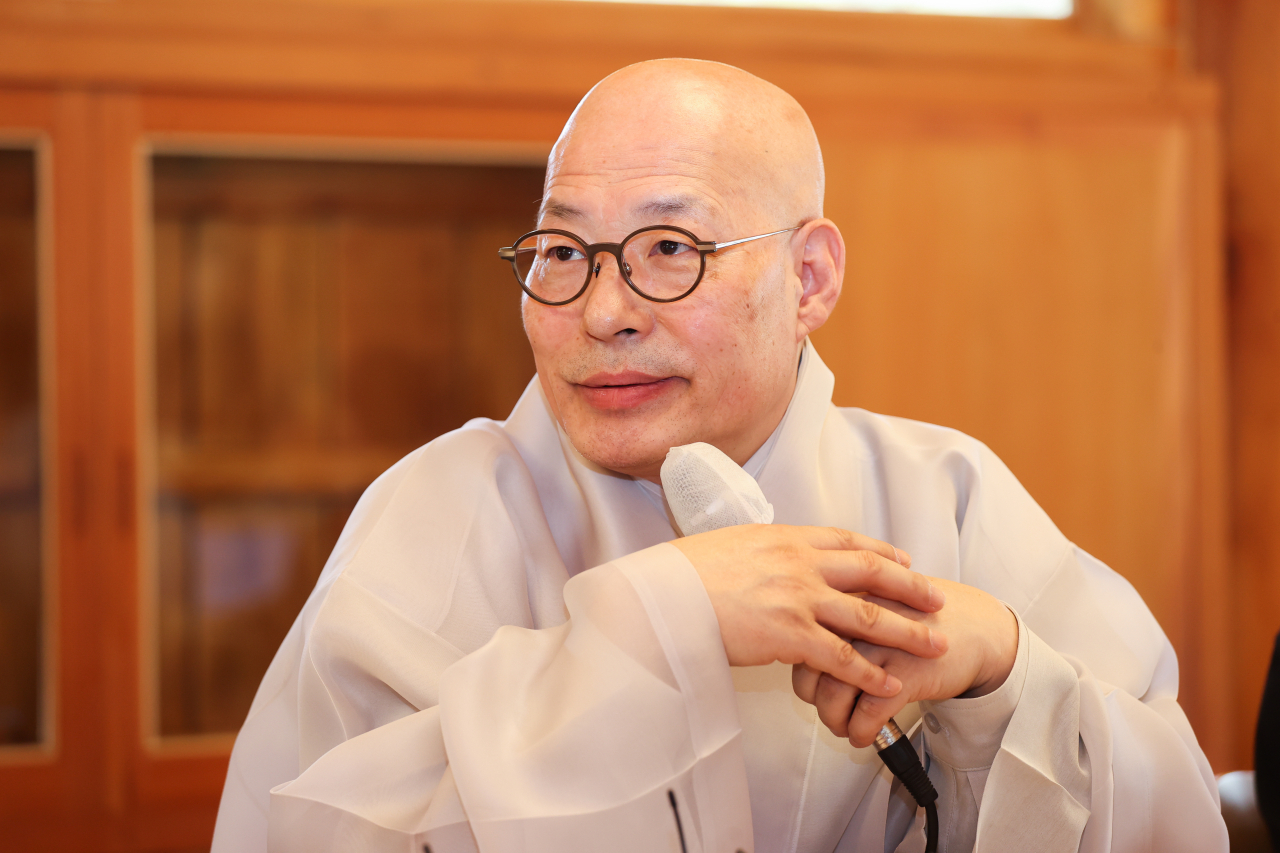 |
Ven. Jinwoo, president of the Jogye Order, speaks to reporters at a press conference held Friday at Jingwansa Temple in northern Seoul. (Yonhap) |
South Korea's largest Buddhist sect, the Jogye Order of Korean Buddhism, said that the government should provide financial support in order for the group to implement free admissions to Buddhist temples, backtracking on its earlier commitment to free admissions made at the New Year’s press conference in January.
"If the authorities do not comply with our demands, it (the fee) may not be abolished," Ven. Jinwoo, president of the Jogye Order, said Friday at a press conference held at Jingwansa Temple in northern Seoul. The press conference was held ahead of Buddha’s Birthday, which falls on May 27 this year.
Admission fees collected by some 70 Buddhist temples nationwide have been a long-debated issue as even those who merely pass through the temples to enter the mountains were charged admissions, ranging from 1,000 won ($0.77) to 6,000 won per person. Many Buddhist temples are situated in scenic mountains popular among hikers and climbers.
In January, the Jogye Order rolled out a plan for scrapping admission fees in line with the revised Cultural Heritage Protection Act scheduled to take effect in May. The revised law requires the state to make up for the loss of admissions fees. A total of 41.9 billion won ($32 million) was allocated by the government for this purpose.
On Friday, Ven. Jinwoo said that the number of people visiting temples may drastically increase once the fees are eliminated, which will lead to a surge in management costs and may result in unexpected difficulties.
According to a Jogye Order official at the event, some temples that waived admission fees during a trial period saw the number of visitors increase up to eight-fold. The official explained that the amount of garbage generated by visitors increased and consequently more money was needed for management and operations.
Ven. Jinwoo said that the Jogye Order is currently in talks with the government regarding a budget for additional costs on top of making up for admission fees.
Meanwhile, Ven. Jinwoo emphasized the Order's plan to reerect a fallen Buddha statue, which is 1,300 years old, in Gyeongju's Namsan, North Gyeongsang Province.
"The fallen Buddha (statue) standing upright will hopefully give good energy to the people and our country," he said.
The Maaebul restoration project, which has a target completion date of 2025, was announced at the January press conference.







